Introduction
When it comes to construction projects, having the right equipment is crucial for efficiency and productivity. Among the essential machinery, skid steer loaders stand out for their versatility and functionality. However, finding the best skid steer loader for your specific needs can be a challenging task. In this blog, we will delve into the various aspects that make a skid steer loader the best choice for construction projects. We will cover key features, top brands, and provide a comprehensive comparison to help you make an informed decision.
Understanding Skid Steer Loaders

A skid steer loader, often simply referred to as a skid steer, is a compact and versatile piece of machinery commonly used in construction projects. The design features of skid steer loaders make them exceptionally valuable for a variety of tasks, from digging and grading to lifting and loading. Their compact size allows them to operate efficiently in confined spaces where larger machinery cannot maneuver. This makes them ideal for urban construction sites or areas with limited access.
The core structure of a skid steer loader includes a rigid frame and lift arms that can be attached to a wide range of labor-saving tools or attachments. These attachments can include buckets, hydraulic hammers, augers, trenchers, and pallet forks, among others. The versatility offered by these attachments transforms the skid steer loader into a multi-functional machine capable of performing numerous tasks with a single base unit.
Key Features of the Best Skid Steer Loader
To determine the best skid steer loader for your needs, it’s crucial to understand the key features that contribute to their overall performance and functionality:
- Engine Power: The engine’s horsepower is a fundamental aspect as it determines the loader’s ability to handle heavy loads and operate efficiently on various terrains. A more powerful engine means the skid steer can perform more demanding tasks without strain.
- Lift Capacity: This feature indicates the maximum weight the loader can lift, which is essential for tasks involving heavy materials. The lift capacity should match the requirements of your construction projects to ensure optimal performance and safety.
- Attachment Options: The best skid steer loaders come with a variety of attachments that enhance their versatility. The ease of switching between attachments and the availability of different tools can significantly impact the loader’s utility across various tasks.
- Maneuverability: One of the defining characteristics of skid steer loaders is their ability to turn within their own footprint, known as “skid-steering.” This maneuverability is especially beneficial in tight spaces where precision and agility are required.
- Operator Comfort: Long hours on the job site can be demanding, making operator comfort a vital consideration. Features such as ergonomic seating, intuitive controls, and climate-controlled cabins can reduce operator fatigue and increase productivity.
- Durability and Maintenance: Construction projects demand reliable and durable equipment. The best skid steer loaders are built to withstand harsh working conditions and are designed for easy maintenance, ensuring longevity and reducing downtime.
Applications of Skid Steer Loaders
Skid steer loaders are incredibly versatile and find applications in various construction activities, including:
- Excavation and Digging: Equipped with digging attachments, skid steers can excavate foundations, trenches, and holes.
- Grading and Leveling: With grading attachments, they can prepare surfaces for construction, landscaping, or paving.
- Material Handling: Skid steers can transport materials like soil, gravel, and construction debris across job sites.
- Demolition: When fitted with hydraulic hammers or other demolition attachments, skid steers can break down structures and clear debris.
- Snow Removal: In colder climates, skid steers equipped with snowplow or snow blower attachments are used to clear snow from roads, driveways, and parking lots.
Innovations in Skid Steer Loader Technology
The evolution of skid steer loaders has seen significant technological advancements aimed at improving efficiency, safety, and ease of use:
- Advanced Hydraulics: Modern skid steers are equipped with advanced hydraulic systems that provide better control and power to attachments, enhancing performance.
- Telematics: Integration of telematics systems allows for remote monitoring of the machine’s performance, maintenance schedules, and location tracking.
- Enhanced Safety Features: Innovations such as automatic safety lockouts, improved visibility, and stability control systems ensure safer operation on job sites.
- Automation and Smart Controls: Some skid steers now feature automated control systems that assist with repetitive tasks, reducing operator fatigue and increasing precision.
Top Brands for Skid Steer Loaders
Several brands are renowned for producing high-quality skid steer loaders. Here, we highlight some of the top contenders:
Caterpillar
Caterpillar is a well-known name in the construction equipment industry. Their skid steer loaders are praised for their robust construction and reliable performance. The Cat 262D3, for instance, is frequently mentioned as one of the best skid steer loaders for construction projects due to its powerful engine and high lift capacity.
Bobcat
Bobcat is synonymous with skid steer loaders. Their models are known for their durability and versatility. The Bobcat S650, with its strong hydraulic system and extensive attachment options, is a popular choice among construction professionals.
Qilu
Qilu offers skid steer loaders that combine innovative technology with robust performance. Qilu QL380 is a standout model, known for its high lift capacity and operator comfort.
Case
Case skid steer loaders are designed for maximum productivity. The Case SR270B is highly regarded for its impressive lift capacity and fuel efficiency.
New Holland
New Holland skid steer loaders are known for their ease of operation and versatility. The New Holland L234, with its powerful engine and user-friendly controls, is a top pick for many construction projects.
Comparison of Top Skid Steer Loaders
To help you decide on the best skid steer loader for your construction project, we have compiled a comparison table of some of the top models available:
| Brand | Model | Lift Capacity (lbs) | Attachments Available |
|---|---|---|---|
| Caterpillar | 262D3 | 2700 | 50+ |
| Bobcat | S650 | 2690 | 60+ |
| Qilu | QL380 | 15-18KW | 40+ |
| Case | SR270B | 2700 | 55+ |
| New Holland | L234 | 3400 | 45+ |
Advantages of Using the Best Skid Steer Loader
Choosing the best skid steer loader for your construction project can offer numerous advantages:
- Increased Productivity: High engine power and lift capacity allow for faster and more efficient task completion.
- Versatility: With a wide range of attachments, skid steer loaders can perform various tasks, reducing the need for multiple machines.
- Cost-Effectiveness: Investing in a high-quality skid steer loader can save money in the long run due to reduced maintenance and repair costs.
- Safety: Modern skid steer loaders come equipped with advanced safety features, ensuring a safer working environment.
- Operator Comfort: Ergonomic designs and user-friendly controls reduce operator fatigue, leading to increased productivity.
Factors to Consider When Choosing the Best Skid Steer Loader
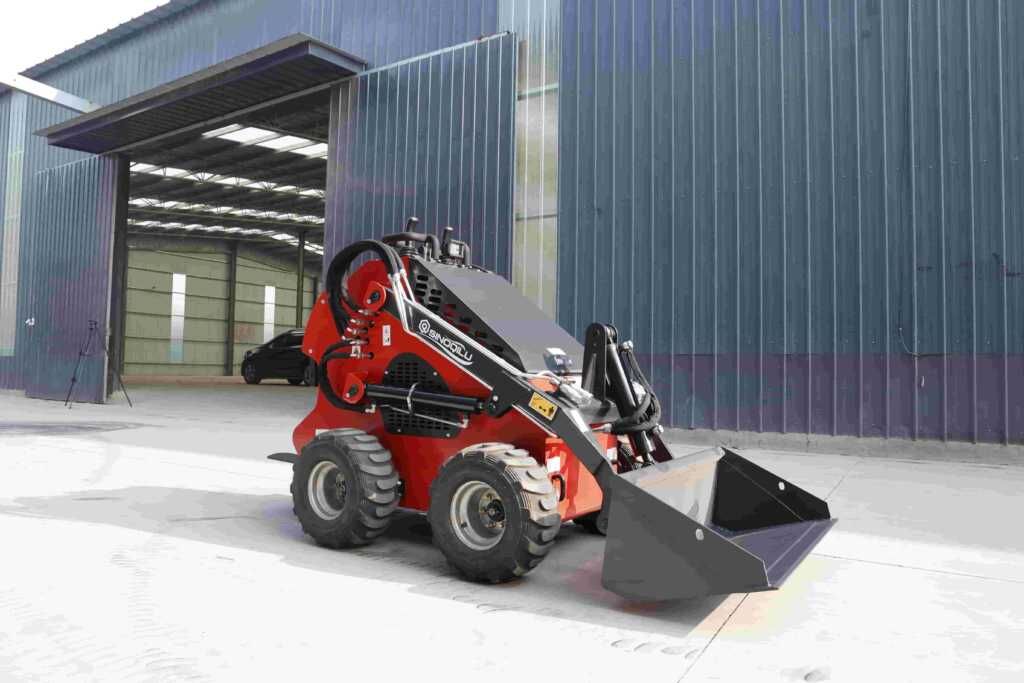
Selecting the best skid steer loader for your construction project involves a careful assessment of several critical factors. Each factor plays a vital role in ensuring that the chosen loader meets your specific needs, provides optimal performance, and delivers value for your investment. Here’s an in-depth look at the essential considerations:
Project Requirements
The foremost factor to consider is the specific requirements of your construction project. Different projects have varying needs in terms of tasks, terrain, and workload. For instance:
- Type of Work: Identify the primary tasks the skid steer loader will perform. Will it be used mainly for digging, lifting, grading, or material handling? Different tasks may require specific features or attachments.
- Work Environment: Consider the environment in which the loader will operate. For projects in confined urban spaces, a compact model with excellent maneuverability is essential. Conversely, larger models may be suitable for open and expansive job sites.
- Load and Lift Requirements: Assess the weight of the materials that need to be lifted and the height to which they need to be raised. Ensure the skid steer loader’s lift capacity matches these requirements to avoid operational inefficiencies.
Budget
Your budget is a significant factor in determining the best skid steer loader for your needs. It’s crucial to consider not only the initial purchase price but also the total cost of ownership, which includes maintenance, operating costs, and potential resale value. Here are some key financial aspects to evaluate:
- Initial Investment: Determine how much you can afford to spend upfront. High-end models with advanced features may have a higher initial cost but can offer long-term benefits.
- Maintenance Costs: Research the expected maintenance costs for different models. Reliable brands with a reputation for durability might have lower long-term maintenance expenses.
- Fuel Efficiency: Consider the fuel efficiency of the skid steer loader. Models that are more fuel-efficient can significantly reduce operating costs over time.
- Resale Value: Some skid steer loaders retain their value better than others. Investing in a well-known, reputable brand can result in a higher resale value when it’s time to upgrade or sell the machine.
Attachments
One of the key advantages of skid steer loaders is their versatility, which is largely due to the wide range of attachments available. When choosing a skid steer loader, consider the following:
- Compatibility: Ensure that the loader is compatible with a variety of attachments that you might need for different tasks. Common attachments include buckets, forks, augers, trenchers, and hydraulic hammers.
- Ease of Attachment Change: Some skid steer loaders are designed for quick and easy attachment changes, which can save time and increase productivity. Look for models with a universal quick-attach system.
- Attachment Costs: Factor in the cost of purchasing the necessary attachments. Sometimes, a loader with a slightly higher initial price but lower-cost attachments can be more economical in the long run.
Dealer Support
Strong dealer support is crucial for the efficient operation and longevity of your skid steer loader. A reliable dealer can provide timely maintenance, parts, and service, ensuring minimal downtime. Consider the following aspects of dealer support:
- Proximity: Choose a dealer that is located nearby or has a service network that can reach your location quickly.
- Parts Availability: Ensure that the dealer maintains a good inventory of spare parts and can supply them promptly.
- Service Quality: Research the dealer’s reputation for service quality. Look for reviews and testimonials from other customers to gauge their reliability and expertise.
- Warranty and Support Services: Check the warranty terms and additional support services offered by the dealer. Extended warranties and service contracts can provide peace of mind and protect your investment.
Reviews and Recommendations
Real-world experiences and feedback from other users can provide invaluable insights into the performance and reliability of skid steer loaders. When researching potential models, consider:
- Customer Reviews: Look for reviews on construction equipment forums, retailer websites, and social media. Pay attention to recurring themes regarding the machine’s strengths and weaknesses.
- Industry Expert Opinions: Consult reviews and recommendations from industry experts and professional reviewers. They often provide in-depth analyses and comparisons of different models.
- Peer Recommendations: If possible, seek recommendations from colleagues or other professionals in the construction industry. First-hand accounts can highlight practical aspects and potential issues you might not find in official reviews.
Technological Features
Modern skid steer loaders come equipped with advanced technological features that can enhance productivity, safety, and ease of use. Consider the following:
- Telematics Systems: These systems provide real-time data on machine performance, location, and maintenance needs, helping you manage your fleet more effectively.
- Automation and Smart Controls: Look for loaders with automated functions and smart controls that simplify operation and reduce operator fatigue.
- Enhanced Safety Features: Features such as backup cameras, stability control, and automatic safety lockouts can prevent accidents and improve job site safety.
Conclusion
In conclusion, the best skid steer loader for construction projects is one that meets your specific needs, offers robust performance, and provides value for money. By considering key features, top brands, and factors such as project requirements and budget, you can make an informed decision. Skid steer loaders are invaluable assets in construction, and investing in the right one can significantly enhance your project’s efficiency and success.
FAQ
What is the best skid steer loader brand?
While several brands are renowned for their skid steer loaders, Bobcat and Qilu are often considered among the best due to their reliability and performance.
How do I choose the best skid steer loader for my project?
Consider factors such as engine power, lift capacity, attachment options, budget, and specific project requirements to choose the best skid steer loader.
Are skid steer loaders expensive to maintain?
Maintenance costs vary by model and brand, but choosing a reliable brand with good dealer support can help minimize maintenance expenses.
Can skid steer loaders operate in tight spaces?
Yes, one of the main advantages of skid steer loaders is their ability to maneuver in tight spaces, making them ideal for various construction tasks.
What attachments are available for skid steer loaders?
Skid steer loaders can support a wide range of attachments, including buckets, forks, augers, trenchers, and hydraulic hammers, enhancing their versatility.





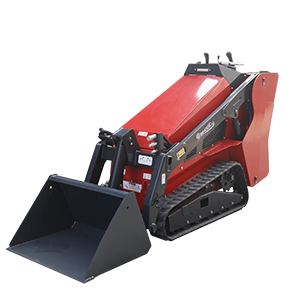
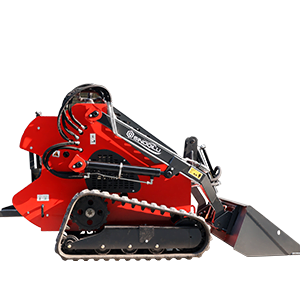
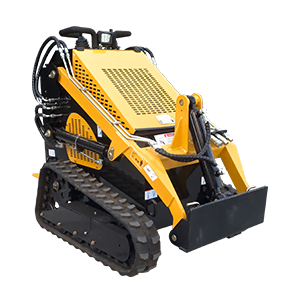
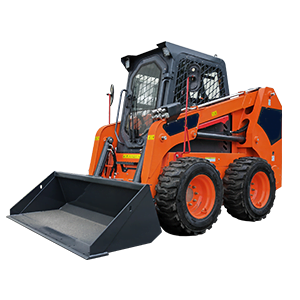
-1.png)